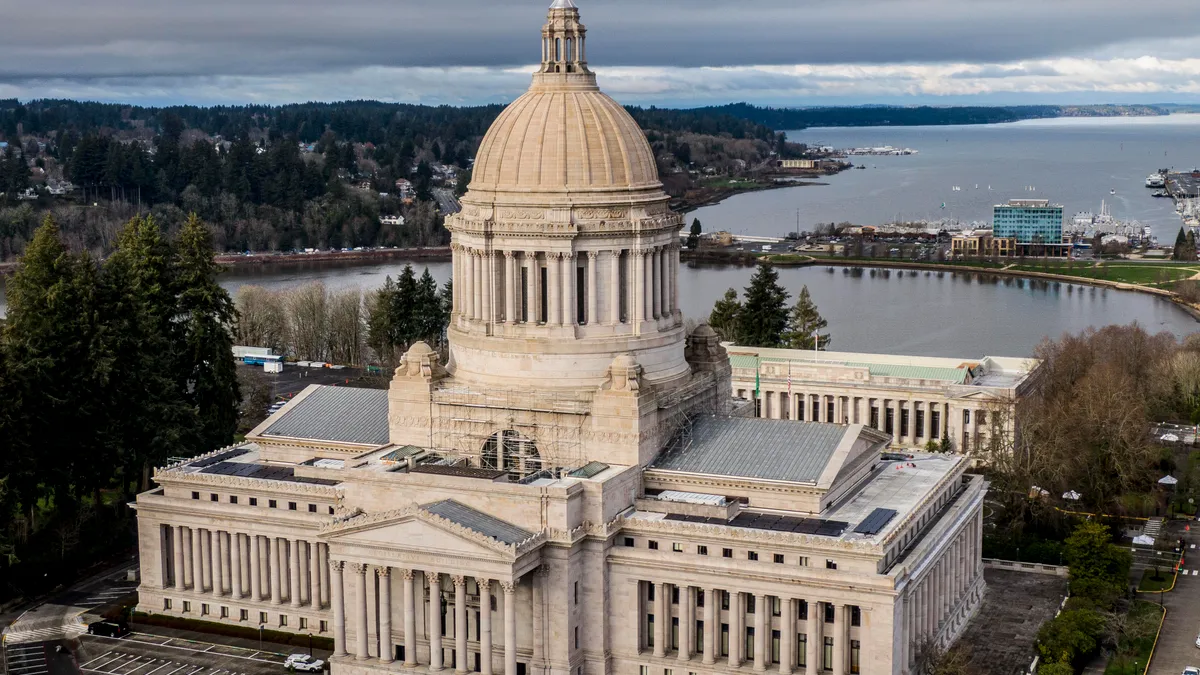State legislation relating to surcharges that merchants can impose on card transactions is pending across the country, from North Carolina to Washington, according to research from the National Conference of State Legislatures.
The organization that tracks state legislation tallied six states where such legislation is “pending” this year, albeit much of it in the form of bills that were introduced last year. Other states include Minnesota, Kansas, Massachusetts and New York.
Some of the legislative proposals in New York may be pushed aside by a big move that state made in December enacting a new law that prohibits merchants from imposing credit card surcharges that are more than what they are charged by the “credit card company” for such transactions.
In North Carolina, a bill would ban any “extra charge for card payments” and would levy a fine of up to $2,500 for a first-time violation. By contrast, a pending bill in Washington would explicitly allow “a transaction fee for processing a credit card payment” as long as a “no-cost payment option is always available.”
“Customer payments by credit card have increased by more than 300 percent over the past decade and corresponding transaction fees that are charged for the use of credit cards have increased drastically as well,” the preamble to the Washington bill notes.
The state deliberations over surcharging come as issues relating to card fees play out in the nation’s capital as well. The proposed Credit Card Competition Act would require banks that issue credit cards to ensure that there are card networks available for processing such payments other than Visa and Mastercard, which dominate that market. Nonetheless, the bill has struggled to attract support amid an interest group war over the issue, pitting banks against merchants.
Enactment of the New York law last year followed months after a similar law in New Jersey was enacted, limiting the surcharge a merchant can impose on consumers to the cost of processing a credit card transaction.
"What those states wanted to do is they wanted to make sure that they at least had a cap on the amount that could be a surcharge," said Jeff Hydrick a partner in Washington at the law firm Orrick Herrington & Sutcliffe.
Along those same lines, Visa sought last year to cap any surcharges on credit card purchases at 3% of the transaction. The card giant has also stepped up its efforts to police those rules.











